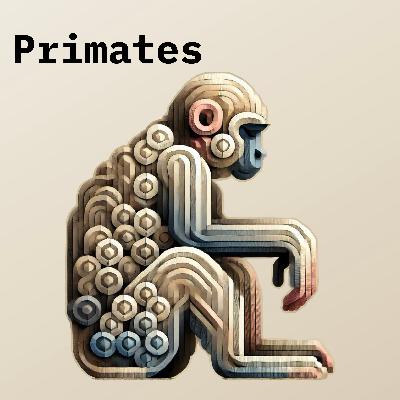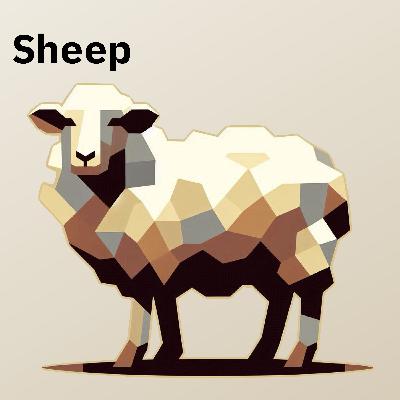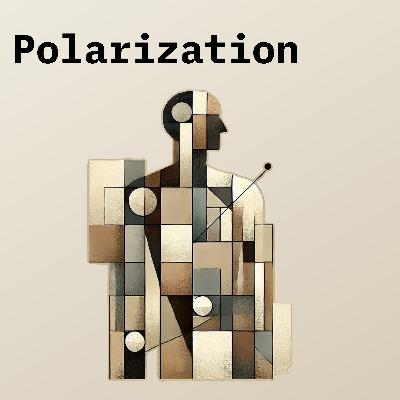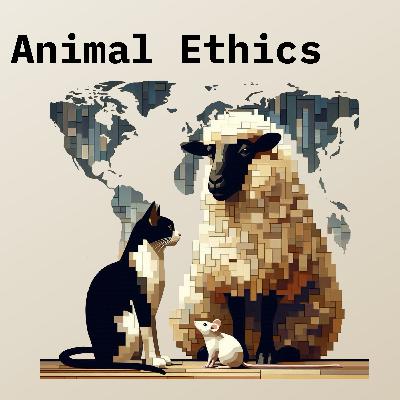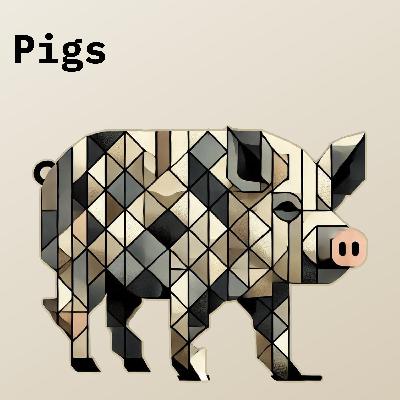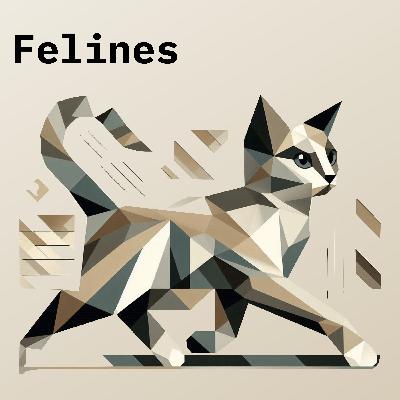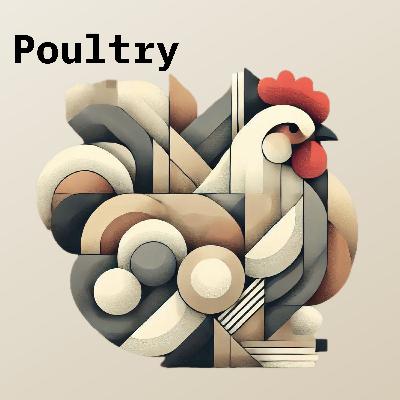Discover Animals in Translation
Animals in Translation

 Animals in Translation
Animals in Translation
Author: Kerri
Subscribed: 1Played: 30Subscribe
Share
© Kerri
Description
The Animals in Translation podcast helps decode animal welfare literature through expert interviews from across the world.
animalsintranslation.substack.com
animalsintranslation.substack.com
7 Episodes
Reverse
In this episode, Lou Grossfeldt, a primate husbandry expert at Taronga Zoo in Sydney, Australia, shares her extensive experience in animal welfare and conservation. Lou’s conservation efforts expand across the globe, including her work with Borneo Orangutan Survival (BOS) Foundation in Indonesia, the Jane Goodall Institute (JGI) in the US, and the Cuc Phuong National Park in Vietnam. She has co-authored the books: Our Primate Family: Stories of Conservation and Kin and Amanka Stories: Saving the Last Apes.During this interview, Lou discusses the evolution of zoos, the importance of collaboration among various organizations, and the unique needs of primates in captivity. Lou emphasizes the role of NGOs in conservation efforts, the challenges posed by poaching and illegal trade, and the significance of responsible ecotourism. She recommends doing your research and checking the International Union for Conservation of Nature (IUCN) when traveling. Lou advocates for education as a vital tool in animal advocacy and expresses hope for the future of primate conservation, highlighting the need for a shared existence between humans, nature, and wildlife. Get full access to Animals in Translation at animalsintranslation.substack.com/subscribe
Kerri and Sophie delve into the overlooked issue of sheep fatigue during transport with special guest Katia Colitti. Katia is a lawyer and writer whose work has been published in Animal Welfare (Cambridge University Press), Global Journal of Animal Law, and European Competition Journal. She grew up in Ukraine, spent over a decade in the U.S., and, since 2012, is based in Belgium. Katia holds an MSc in international animal welfare, ethics, and law, a JD, an MA in economics for competition law, and a BA in Political Science. She writes on Substack about cat health and welfare, the human-cat relationship, and cat loss grief.Katia shares insight from her paper Sheep Fatigue During Transport: Lost in Translation? in which she used Reflexive Thematic Analysis, a qualitative research method rooted in psychology, to investigate stakeholder's understanding of sheep fatigue and how it relates to welfare issues of exhaustion, stress, and sensory overload. She discusses the theme of anthropomorphism and its differing subsets: anthropocentric anthropomorphism, animal centric anthropomorphism, and heuristic anthropomorphism. Katia found anthropomorphism common within stakeholder's interpretation of sheep experience and notes how it may be used to help shape public policy within animal welfare. They discuss the challenge with this prey animal's stoic appearance and how QBA (qualitative behavior analysis) may help identify the subtle cues of fatigue in sheep while being transported. Listeners will also learn about the complexities of intercontinental live animal transport in this episode of Animals in Translation. Get full access to Animals in Translation at animalsintranslation.substack.com/subscribe
In this episode, Sophie and Kerri interview PhD student and Teagusc Walsh Scholar, Amy Duley, about her paper called Irish cattle farmers’ experiences and perceptions of negative framing of farm animal welfare in the media. She discusses the communication gaps between farmers and the public, the media's role, and negative stereotypes affecting farmers' mental health. They delve into the topics of social trust, One Welfare, and the lack of services within the rural farm community. Duley talks about her past work as a USDA inspector, the need for updated legislation and improved training in US slaughterhouses. She stresses that farmer well-being is vital for good animal welfare and advocates for better communication among all stakeholders. Stepping outside of the “us and them” thinking and engaging in authentic discourse will benefit all: farmers, consumers, animals, and the environment. Get full access to Animals in Translation at animalsintranslation.substack.com/subscribe
Sophie and Kerri interview bioethics professor, Peter Sandøe, about his long career in animal ethics and companion animal welfare at University of Copenhagen. Sandøe values cross-cultural and multi-disciplinary discussions when it comes to animals. In this interview, he explains the need for understanding diverse viewpoints and ethical pluralism for collaboration and progress within animal welfare, which is highlighted in his 2013 publication, The Good, the Right, and the Fair. Sandøe discusses his most recent paper, A Consensus on the Definition of Positive Animal Welfare, and the process in which it came about. He also touches on examples of applied animal ethics topics including: wildlife rehabilitation and the importance of returning animals to the wild for the prevention of pet-ification; cultural differences in pet ownership and sterilization norms; end-of-life decisions for shelters and pet owners; speciesism and the need to reevaluate the categorization of animal groups; and the need for better welfare of farmed animals, especially pigs. Sandøe concludes his interview by addressing how political crises hinder animal welfare progress, such as the EU’s Cage Free Europe, and stressed the need for peace for the sake of human and non-human animals alike. Get full access to Animals in Translation at animalsintranslation.substack.com/subscribe
In this episode of Animals in Translation, Kerri and Sophie interview Dr. Inés Sánchez-Garcia about her MSc dissertation on the motivation and cognitive abilities of pigs. Ines is a laboratory animal veterinarian at Newcastle University. She is responsible for, monitors and provides advice on the health, welfare and treatment of animals in research, with a particular interest in animal welfare, motivation and cognition. After graduating from Complutense University of Madrid, she pursued an international career across three continents as a veterinary clinician. Her passion for animal welfare drove her to complete a master’s degree at the University of Edinburgh in applied animal behaviour and welfare.Inés explains the complex relationship between motivation, behavior, and cognition, and how it should be considered in animal research to help reduce bias and support the 3R-s, particularly the reduction of animals used. Inés walks listeners through the concepts of contra freeloading, such as cat predation, and reward anticipation through learned experience, such as training a dog with treats. She also touches on the variation in cognitive styles, such as in humans using different skills to solve a math problem. Here’s a link to a video about her research. Inés' study supports the claim that food restriction is not necessary for cognitive behavioral research on pigs. The study also suggests that pigs with environmental enrichment tend to perform better on cognitive tests. Inés highlights the need for better welfare standards in animal husbandry, particularly eliminating the use of farrowing and gestation crates, and providing straw to pigs in commercial farms. Get full access to Animals in Translation at animalsintranslation.substack.com/subscribe
SummaryIn this episode, postdoctoral cat researcher, Martina Cecchetti, discusses her research paper called "Provision of High Meat Content Food and Object Play Reduce Predation of Wild Animals by Domestic Cats Felis catus" with hosts Sophie, Kerri, and the Cat. Martina's research on domestic cat ecology and behavior focused on strategies to reduce the predation of wildlife by domestic cats. The conversation covers her methodology, the interventions tested, and the impact of cat owners' behavior on wildlife conservation. The discussion highlights the importance of balancing cat welfare with wildlife protection, and the effectiveness of high-meat food, object play, and BirdsbeSafe collars in reducing hunting behavior. This interview explores the complex relationship between domestic cats and wildlife, emphasizing the importance of responsible cat ownership, cultural attitudes towards cat confinement, and the nutritional needs of cats. The discussion highlights the ecological impact of free-roaming cats, the challenges of implementing cat enclosures, and innovative solutions for pet food that consider animal welfare and environmental sustainability. Get full access to Animals in Translation at animalsintranslation.substack.com/subscribe
In this episode of Animals in Translation, Sophie, Kerri, and The Cat interview Lisa Yang to discuss her recently published research paper: Animal welfare with Chinese characteristics: Chinese poultry producers’ perceptions of, and attitudes towards, animal welfare. Lisa found that, although poultry producers have an understanding of animal welfare, prioritizing economic motivations is key to successful interventions leading to cage-free housing systems.You can find more about her research on poultry welfare in China here. Get full access to Animals in Translation at animalsintranslation.substack.com/subscribe


